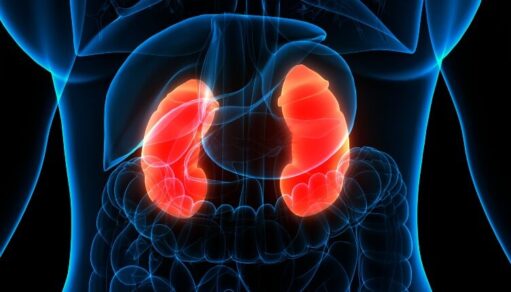Inequalities in kidney health and treatment need to be urgently addressed, according to a new report led by UK academics and supported by Kidney Research UK.
Time to act: A new review of kidney health inequalities shows that people’s experiences of kidney disease are not just determined by the condition itself but by a range of societal influences, too. Age, sex, education, location, ethnic background, or lack of wealth affect a person’s risk of developing kidney disease and how quickly the disease develops.
People from a low socioeconomic and people of Black, Asian or mixed heritage are particularly impacted by kidney health inequalities and have a higher risk of developing kidney disease.
Related Article: Boost your CPD with the redesigned Nursing in Practice 365 platform
The review builds on a 2018 report from Kidney Research UK and shows that few changes have been made to reduce such inequalities in health and care in the last five years. In addition, the Covid-19 pandemic has negatively impacted kidney health, creating new inequalities.
The authors are calling for ‘urgent action’ from the Government to address the social and economic inequalities that put some people and communities at a greater risk of kidney disease and prevent some patients from accessing treatment and care.
Rates of kidney disease are increasing, as are the contributory factors, such as diabetes, cardiovascular disease and obesity. Current data shows that more than 7.25 million people are living with kidney disease in the UK, and many are undiagnosed. The researchers say the increase is ‘threatening to overwhelm the NHS’ unless action is taken.

The report findings highlight several patient groups who are at a higher risk of developing kidney disease, with South Asian adults developing kidney disease younger than white adults and people from low socioeconomic groups more likely to develop chronic kidney disease than those in higher socioeconomic groups.
The most significant gap in early diagnosis is among Black, Asian and other minority populations, resulting in higher rates of kidney failure compared to people of white heritage. Under-70s living in deprivation are more than twice as likely to progress to kidney failure than those in more affluent areas, and people with mental health conditions experience faster disease progression and worse outcomes.
Related Article: Adults with depression accrue long-term physical conditions at a faster rate
Inequalities were often found to affect people in multiple ways, increasing their risk of poor kidney health. For example, Black people are more likely to experience kidney failure and need dialysis or a transplant than white people and are more likely to live in deprived areas, where kidney failure can be twice as likely in the under 70s compared to people living in affluent areas.
Professor Fergus Caskey, one of the lead authors of the report from the University of Bristol, said: ‘More than 10 per cent of the UK population has chronic kidney disease, and we are not all affected equally. Most notably, people from South Asian and Black backgrounds are three to five times more likely to develop kidney failure and start dialysis than people from White backgrounds. By raising awareness of these inequalities and making small changes to the way we work, we all could have an equal chance of kidney health.’
The researchers also found that knowledge of genetic and societal risk factors could be better used to design interventions to improve kidney health and provide more evidence about how differentiated public health communication can help patients understand their diagnosis and care.
Related Article: Lack of essential vitamins and minerals common in people with type 2 diabetes
Liz Lightstone, Professor of Renal Medicine at Imperial College London and trustee at Kidney Research UK, added: ‘Eradicating unjust kidney health inequalities is an urgent priority and must become everyone’s responsibility so that we can increase engagement and trust and deliver true change. We look forward to working with health decision makers and the new government so we can ensure everyone has their fair chance at good kidney health.’






